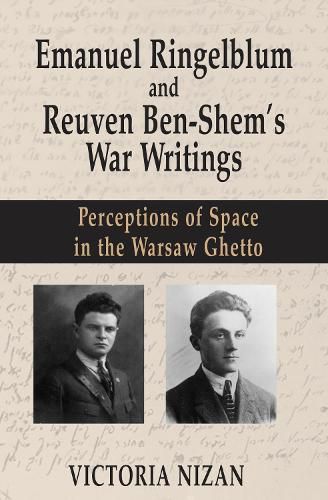Readings Newsletter
Become a Readings Member to make your shopping experience even easier.
Sign in or sign up for free!
You’re not far away from qualifying for FREE standard shipping within Australia
You’ve qualified for FREE standard shipping within Australia
The cart is loading…






History and politics were two important concepts defining Jewish identity prior to the Second World War. This book explores how these were expressed in the war writings of Emanuel Ringelblum and Reuven Ben-Shem, inmates at the Warsaw Ghetto. Each produced different accounts in purpose and style, Ringelblum's diary was a historical record whereas Reuven Ben-Shem's was personal, primarily intended to inform the world what had happened to his family. Despite their vast political differences, one thing stands out, Jewish history defined their personal identity, and they derived moral and political inspiration from it.
Scrutiny of the diaries suggests that the range of topics and how they were recorded reflects traditional approaches to appropriacy, resulting in a focus predominantly on the public sphere, leaving us to speculate the private arena. The book examines relationships between physical spaces in the Warsaw Ghetto, and how they were conceived. That is, how writing reflected the disruption of Jewish spaces by blurring boundaries between the private and public spheres resulting in abjection. The more Jews were crowded into progressively dwindling space, the more the private became public.
The innovation of this research lies in creating a model using historical records, philosophy and literature to understand the interactions between people, spaces and conditions in the Warsaw Ghetto, and their effect on its inhabitants and outsiders. Indeed, the study of these diaries indicates that language operated as a spatial vehicle for introducing order into chaos.
$9.00 standard shipping within Australia
FREE standard shipping within Australia for orders over $100.00
Express & International shipping calculated at checkout
Stock availability can be subject to change without notice. We recommend calling the shop or contacting our online team to check availability of low stock items. Please see our Shopping Online page for more details.
History and politics were two important concepts defining Jewish identity prior to the Second World War. This book explores how these were expressed in the war writings of Emanuel Ringelblum and Reuven Ben-Shem, inmates at the Warsaw Ghetto. Each produced different accounts in purpose and style, Ringelblum's diary was a historical record whereas Reuven Ben-Shem's was personal, primarily intended to inform the world what had happened to his family. Despite their vast political differences, one thing stands out, Jewish history defined their personal identity, and they derived moral and political inspiration from it.
Scrutiny of the diaries suggests that the range of topics and how they were recorded reflects traditional approaches to appropriacy, resulting in a focus predominantly on the public sphere, leaving us to speculate the private arena. The book examines relationships between physical spaces in the Warsaw Ghetto, and how they were conceived. That is, how writing reflected the disruption of Jewish spaces by blurring boundaries between the private and public spheres resulting in abjection. The more Jews were crowded into progressively dwindling space, the more the private became public.
The innovation of this research lies in creating a model using historical records, philosophy and literature to understand the interactions between people, spaces and conditions in the Warsaw Ghetto, and their effect on its inhabitants and outsiders. Indeed, the study of these diaries indicates that language operated as a spatial vehicle for introducing order into chaos.